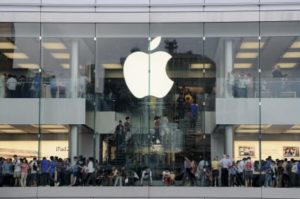“…a user can essentially set their Apple Watch as a proximity-based authentication factor for the iPhone when wearing a mask.”

Apple continues to adapt its authentication security to the pandemic age, with new software updates that let iPhone users unlock their devices more easily when wearing face masks.
The updates arrive in the form of beta versions of iOS 14.5 on the iPhone and watchOS 7.4 for the Apple Watch. Thanks to a new “Face ID & Passcode” setting on the iPhone, a user can essentially set their Apple Watch as a proximity-based authentication factor for the iPhone when wearing a mask.
Here’s how the novel authentication system works: the user looks at their iPhone; the iPhone detects that they are wearing a mask; and if it detects a paired Apple Watch, it will unlock.
As 9to5Mac reports, the new security feature doesn’t seem to be based on the biometric authentication of Apple’s face-scanning Face ID system at all. Instead, it’s simply treating the Apple Watch as a legitimate authentication credential.
That’s probably not as secure as Face ID, which is a highly sophisticated facial recognition system in its own right. And another component of the Apple Watch authentication system appears to acknowledge this shortcoming: during the authentication process, a notification is sent to the Apple Watch telling the user that it’s being used to unlock an iPhone, and this features an embedded “Lock iPhone” button enabling the user to quickly lock their iPhone from the Apple Watch screen.
The new feature is similar to one introduced last May in a beta version of iOS 13, in which the iPhone’s authentication system would bypass Face ID and go straight to a prompt for passcode entry if it detected that the user was wearing a face mask. It was an ad hoc adjustment to the new prevalence of face masks in the wake of the pandemic, since Face ID was starting to struggle to authenticate users whose faces were partially obscured.
Clearly, Apple is continuing to look for innovative ways to adapt to the widespread use of face masks. But the new software updates might not move from their beta versions to mainstream OS updates for regular iPhone and Apple Watch users for a few months.
Source: 9to5Mac

Follow Us